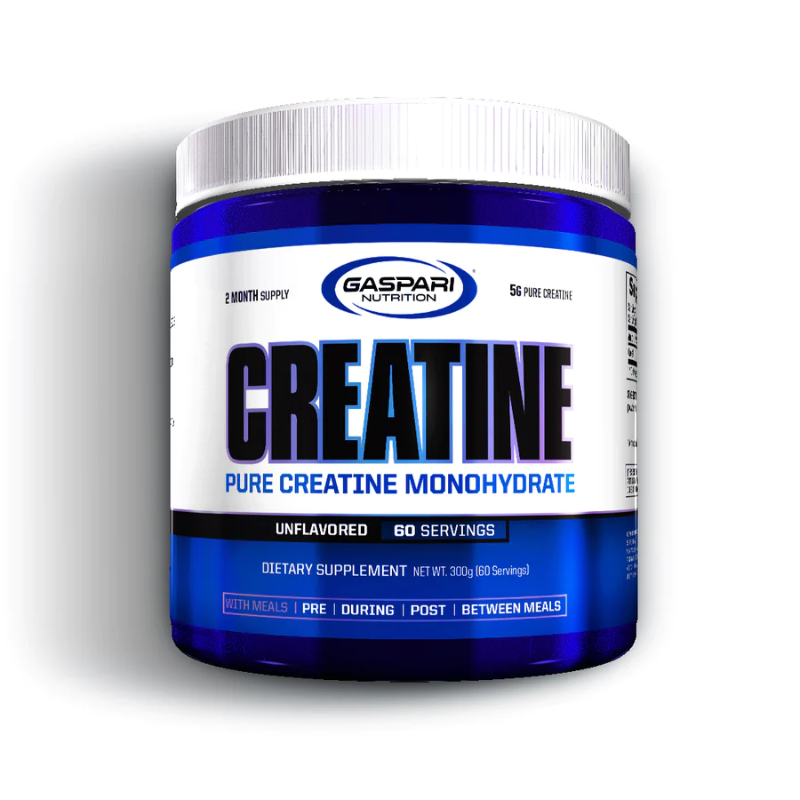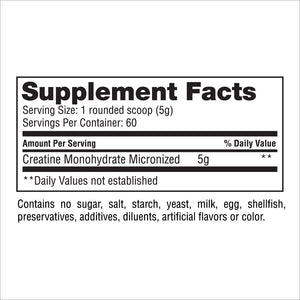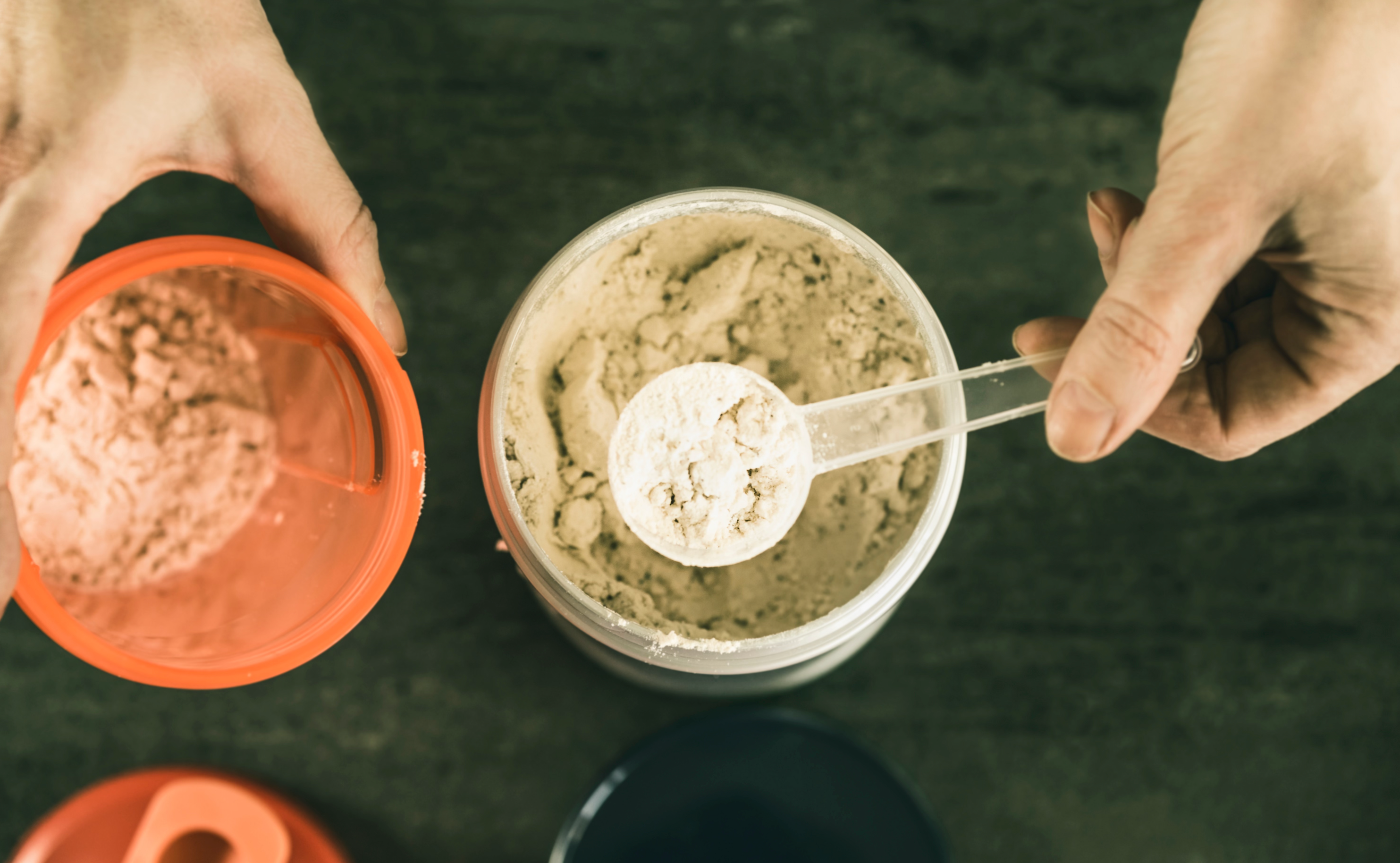Creatine monohydrate is one of the most popular sports supplements on the market.
As athletes and fitness enthusiasts, we know that creatine can provide tremendous performance and muscle-building benefits when taken correctly.
However, a common question we get from customers is whether creatine can actually go bad and become ineffective over time.
In this post, we'll break down everything you need to know about the shelf life and proper storage of creatine monohydrate powder. We'll also provide tips on how to assess if your creatine may have expired and when it's best to replace an old tub.
What is Creatine Monohydrate?
Before we discuss storage and shelf life, it's important to understand exactly what creatine monohydrate is. Creatine is a naturally occurring compound that is found in animal foods like meat and fish. It is also produced in small amounts in the human body, primarily in the kidneys and liver.
Supplemental creatine monohydrate is identical to the naturally occurring form in the body and is the most extensively researched and proven type of creatine.
The Role of Creatine Monohydrate in Muscle Strength and Size

When ingested, creatine monohydrate gets stored as creatine phosphate (CP) in our muscles.
CP plays a key role in providing rapid energy for muscle contractions and anaerobic activity. This is why creatine supplements are so popular with power athletes and those looking to build strength and lean muscle mass.
Multiple studies have shown that creatine supplementation can boost strength gains from weight training by 5-15% on average. It can also increase lean body mass by up to 3-5 pounds within just a few weeks of use.
Creatine Monohydrate Shelf Life
Now that we understand the performance and physique-boosting benefits of creatine, let's look at how long it retains these effects before going bad.
The shelf life of creatine monohydrate powder is generally 2-3 years from the manufacturing date. However, there is evidence that it remains stable and effective for much longer when properly stored.
Proper Storage of Creatine
To maximize shelf life, store creatine in a cool, dry place in an airtight container and keep it away from sunlight and moisture. You should avoid mixing it with other powders, as this can speed up the breakdown process. When stored properly, creatine stays pure and potent for years.
Early Signs of Expiration
You'll usually notice if creatine monohydrate powder has gone bad through discoloration, texture changes, strange odors, altered solubility, or an off-taste. Discard creatine showing any signs of degradation, and get a fresh container.
Don't risk taking expired or low-quality supplements.
How to Use Creatine Monohydrate Safely and Effectively
Here at Gaspari Nutrition, we recommend taking 5 grams of creatine monohydrate powder per day, without cycling on and off. There is no need to only take creatine at specific times - you can take your daily dose at any point throughout the day.
The most important thing is to maintain a consistent daily intake rather than timing it before workouts.
In addition, staying properly hydrated by drinking plenty of water daily also helps optimize creatine's muscle-building and strength-enhancing effects in your body.
The Quality and Purity of Gaspari Nutrition's Creatine Monohydrate

Our Creatine Monohydrate is a superior fitness supplement, known for its purity and quality.
It's crafted with ultra-pure, filler-free creatine monohydrate, a proven ally for strength trainers, helping increase muscle size, strength, and power, as well as boosting anaerobic endurance. It also offers antioxidant support, moving beyond just muscle building.

This supplement is unflavored and mixes seamlessly with any beverage, providing an easy and convenient way to consume it.
With our rigorous quality control, you can be assured of the high standard of this supplement.
Frequently Asked Questions
What are the potential side effects of taking expired Creatine Monohydrate?
The potential side effects of taking creatine monohydrate that's expired include upset stomach, dehydration, kidney stress, muscle cramps, and lack of results. While typically mild, it's wise to avoid degraded creatine as the purity and potency can't be guaranteed. For your safety and to harness creatine's full benefits, always inspect powders closely and follow proper storage guidelines.
What precautions should be taken when using Creatine Monohydrate?
Key precautions when using creatine include staying hydrated, following dosage guidelines, avoiding mixing powders, routine inspection for degradation, proper storage away from heat/moisture, not using if the seal is broken when first opened, and consulting a doctor if you have medical conditions. Following these precautions helps ensure safe, effective use.













































































Share:
Expert Guide: How Often to Train Triceps for Maximum Growth
Sumo Squats vs Regular Squats: Which Squat Variation Is Better For You?